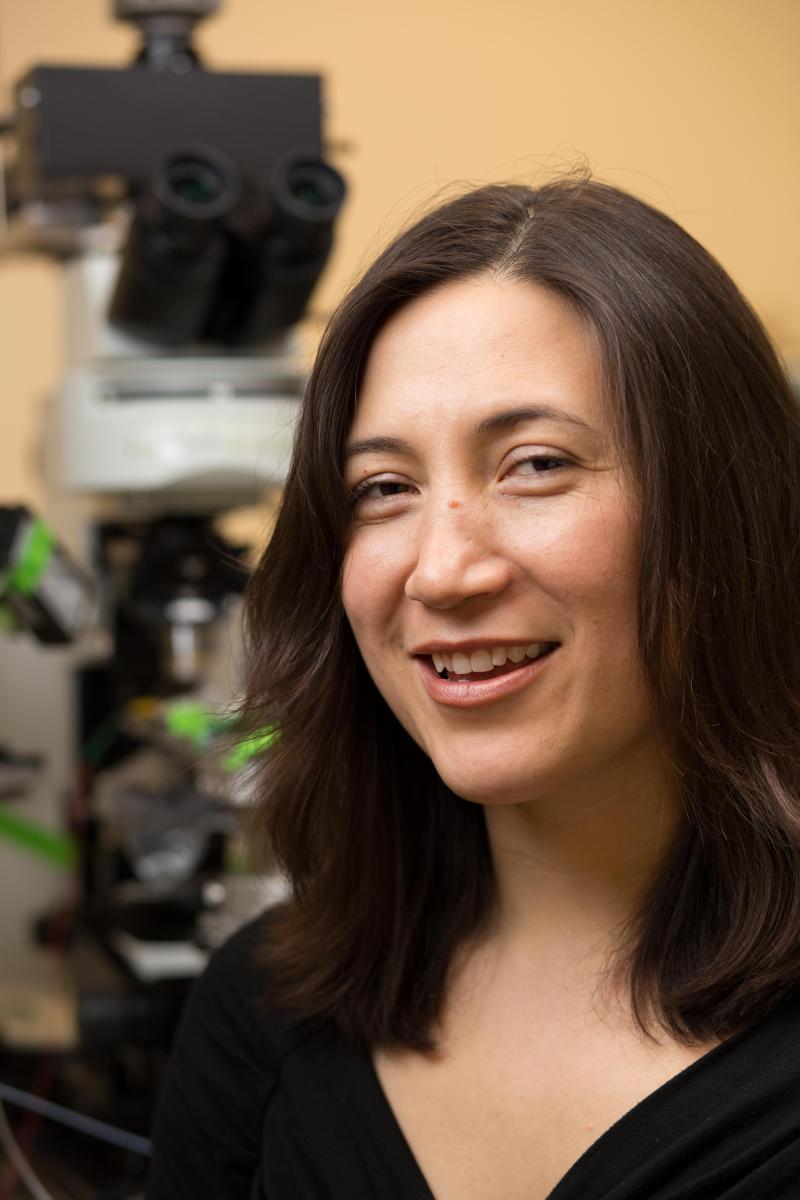
Yasmin Escobedo Lozoya
AntoZero LLC
Scientist
Calcium Imaging Learning And Memory Serotonin Lateral Septum Drug Reward Electrophysiology
I am originally from Mexico and did my undergrad at UNAM in Mexico City. From the moment I first did a single channel recording back when I was an undergraduate at UNAM, I became fascinated by ion channels and by the intricate ways they function within neurons to allow them to respond to inputs, encode information, and perform computations. I pursued my Ph.D. at Brandeis University where I focused on the study of homeostatic plasticity mechanisms, a family type of cell-autonomous plasticity mechanisms that is thought to underlie the ability of cortical circuits to adapt to global changes in input. We discovered compensatory plasticity triggered by classic homeostatic plasticity triggering manipulations can contribute to destabilizing circuits during development and lead to epilepsy if left unchecked. That work led me to become interested in developing the expertise to investigate how neural plasticity mechanisms at the cellular level shape the computations that neural circuits are capable of at the systems level, and how this may contribute to balanced or imbalanced neural function. This thus fueled my interest to develop toolkits that would allow researchers in industry or academia measure the parameters relevant to the functional integrity and resilience of neural networks in human cells, going beyond the limitations of existing preclinical systems. I co-lead the design and implementation of AntoZero's innovative multi-cellular iPSC platform, integrating diverse cell types to model the brain's Integrative Homeostatic Network (IHN). My focus is on developing and validating robust functional assays based on network dynamics, plasticity, and response to perturbation, creating a predictive system for identifying and testing interventions aimed at restoring network health in aging and neurodegeneration. @neuromixologist.bsky.social
About Yasmin
Location
Boston, MA United States
Research areas and interests
Addiction Molecular Genetics / Neuroepigenetics Neural Circuits And Behavioral Plasticity Neurodegeneration And Disease Synaptic And Molecular Systems Translational Neuroscience
Research methods
Neural Circuit Analysis Neural / Brain Imaging Synapses Cell Signals Molecular Biology, IPSC Line Engineering
Research model system